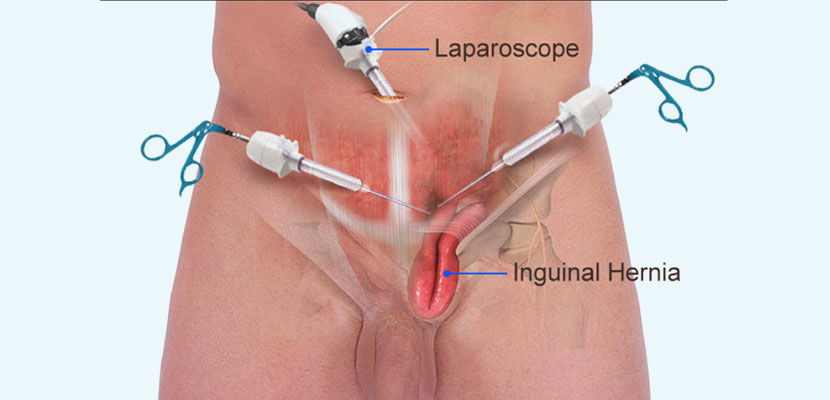Closed Hernia Surgery
Closed hernia surgery, also known as laparoscopic or minimally invasive hernia repair, is a surgical procedure aimed at repairing a hernia without the need for a large incision. Hernias occur when an organ or tissue protrudes through a weak spot in the surrounding muscle or connective tissue, often causing pain and discomfort. During closed hernia surgery, small incisions are made near the hernia site, and a laparoscope (a thin, flexible tube with a camera) and specialized surgical instruments are inserted to visualize and repair the hernia. Mesh may be used to reinforce the weakened area and reduce the risk of recurrence. Closed hernia surgery offers several benefits compared to traditional open surgery, including smaller incisions, reduced postoperative pain, shorter recovery time, and lower risk of complications such as infection and wound healing problems. While closed hernia surgery is generally safe and effective, it may not be suitable for all types of hernias or individuals with certain medical conditions. It's essential to discuss the risks and benefits of hernia surgery with a qualified healthcare provider to determine the most appropriate treatment approach for each individual's specific condition.









